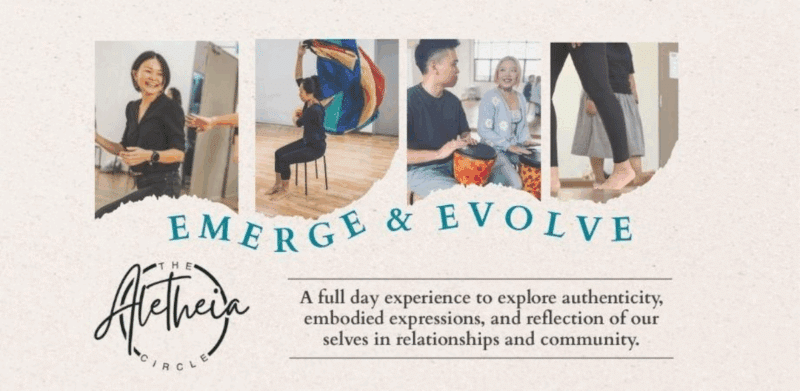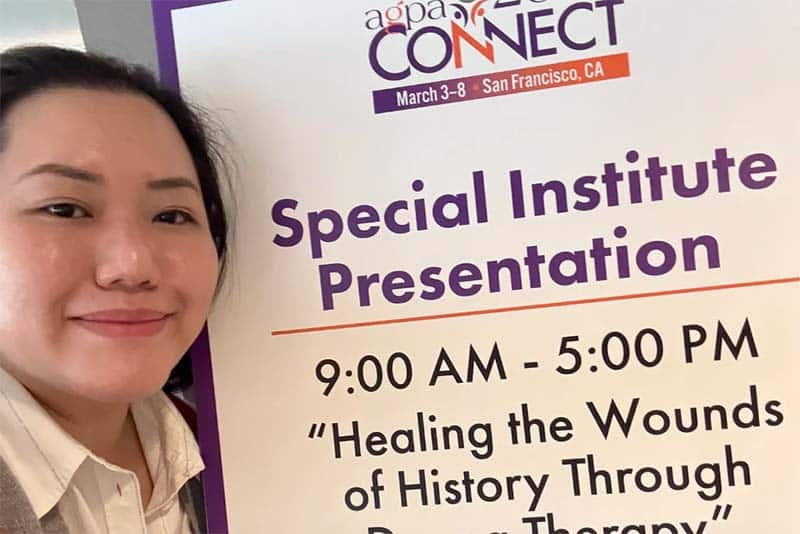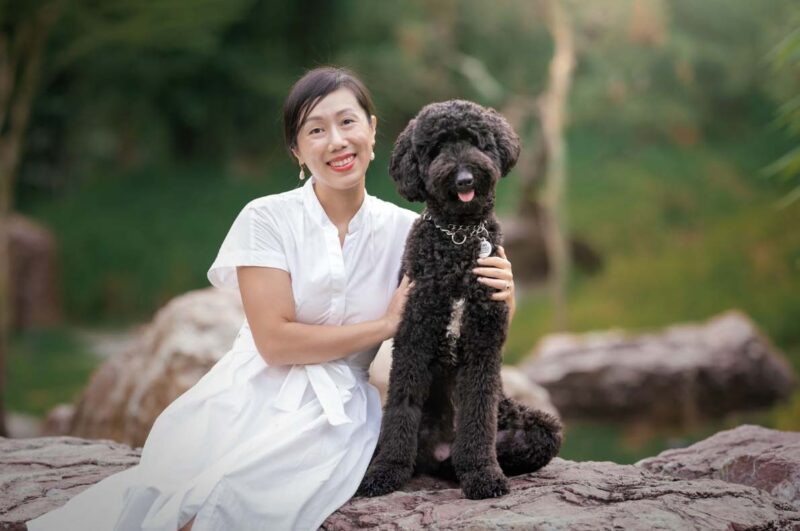You may have been directed to this page from the previous article on ‘ What Do We Already Know About Anxiety? or you have chanced upon this article and wondered: What is existential anxiety?
Existentialists have been contemplating and discussing existential anxiety for years, and it can get quite messy and confusing to understand.
At a crossroads
I have always found metaphors to be a good way to understand a difficult concept. They allow us to understand it with both our head and heart. So I would highly recommend that you allow yourself to embody the experience of the metaphor.
Imagine you are standing at a crossroads. You have two paths in front of you. Or even more. All paths seem exciting. You want to follow but you can only choose one. You look to the left and think of all the good that can come out of it, but then you think, “ If I go to the left, I’m going to miss out on all the fun on the right.” Or you start wondering if whatever you choose would be the right choice for yourself. So many what ifs. You can’t decide. You wish someone could tell you what to do rather than making a decision yourself.
In a gist, this is existential anxiety. It is generally defined as the expression of ultimate concerns about life itself, including things such as meaninglessness, death, fundamental loneliness, and lack of certainty. [1] This could be familiar to some of us when we have to make tough decisions in our lives. Marry or not marry. Choose this career or another. It can happen to anyone at any age. And some have even asked why they would get anxious over something as trivial as what to buy for dinner. It seems so stupid to even be anxious about it.
In these situations, you may experience thoughts of:
- What’s the point?
- I am insignificant
- There’s no meaning to anything
- I’m wasting my life
- It’s all pointless
- Who am I supposed to be?
- I have no purpose
- How do I know if any of this is real?
- Why are we here?
Along with these thoughts, you may experience other symptoms in your body, thoughts and feelings [Read more on symptoms of anxiety].
What we need to know about existential anxiety
- It is normal for humans to experience existential anxiety. Yalom (1980) argues that individuals, whether they are conscious of the fact or not, still experience the impact of existential anxieties. After all, we are the only animals on Earth to experience it because we have the capacity for freedom and choice.
- Existential anxiety tells us we are not living life authentically. Emotions play a crucial role in our lives. They are useful and functional. Existential anxiety signals to us that we may be living other people’s lives and not ours. It is asking us to live more purposefully and authentically.
- Existential anxiety is not a medical condition. We often think that anxiety is bad and needs to be fixed. Another attitude is to see it as unavoidable rather than pathological. Existential anxiety can be a creative energy that spurs us to becoming better versions of ourselves. Because of this, we should find ways to live more harmoniously with our anxiety rather than eliminate it.
How can psychotherapy help me with my existential anxiety?
Studies have shown that in normal circumstances, most of us can manage these concerns. However, there are times (e.g., hardship, adversity, trauma, loss), when we struggle to cope and hence, are thrown into an existential crisis [2]. We find ourselves seeking professional help.
To cope with our existential anxiety, it is worthwhile asking ourselves our goals in therapy. For some of us, it is enough to cope with the symptoms and unhealthy behaviour arising from our anxiety. In these cases, Exposure Therapy and Cognitive Behaviour Therapy (CBT) have been proven to be effective by teaching practical techniques to help reframe our negative thinking, desensitise us to what we feel anxious about, and change our behaviors.
For some others, they hope to have an improved relationship with their anxiety. Here, Acceptance and Commitment Therapy (ACT) has shown to be effective as it involves identifying our values in life and then acting in ways that match our values. There are many other forms of therapy that are useful in treating anxiety that you can read about here.
However, very often, coping with the symptoms and unhealthy behaviour of our anxiety is like playing the whack-a-mole game. Each time we successfully deal with an anxiety symptom, another pops up. No matter what we do, it feels futile.
This is because we are not dealing with the root of the issue: What does it mean to lead a meaningful life for ourselves?
In my own experience as a client and therapist, I found being advised with techniques and skills to living a happier life can be counterproductive, especially if we are experiencing existential anxiety. Rather, the answers to our questions should be found within ourselves.
Existential therapy does just that – to help clients live an authentic life through the engagement of life concerns, such as meaning, death, responsibility, freedom, and uncertainty.
What can you expect from going through existential therapy?
Unstructured talk sessions. Not having a structure in therapy means you can talk about anything in the room. To some, this may sound unproductive without a direction. For others, this may increase anxiety, raising questions of whether therapy is useful.
However, life is uncertain and can be scary. We do not know what will happen next but we have to continue to make choices for ourselves. This is the fact of life. And existential therapy attempts to bring this uncertainty into the room so that we can start to:
- Get comfortable with not knowing. Often, big questions to our lives do not come with immediate answers. Through dialoguing with your therapist in a safe space, you learn to better stay with not knowing through this experience; you can also engage with uncertainty in more meaningful ways rather than avoid them.
- Experience and learn to cope with anxiety in the here-and-now. ‘How should I present myself at work/home/outside?’ ‘What can/should I say or not say to people I just meet? ‘What will others think of me?’ These are some common questions we ask of life and they are often the questions clients ask of therapy too. ‘How should I present myself in therapy?’ ‘What can/should I say or not say to my therapist? ‘What will my therapist think of me?’ Existential anxiety happens anywhere, anytime, and therapy starts when we can start engaging with these questions right there and then. Through that, we start to see that how we cope with our anxiety in the room is often reflective of how we cope outside in our lives.The new ways we learn to cope with anxiety in the room can then be transferred to how we cope with them outside.
- Make right decisions. It is important to pick up skills in how to make right choices for ourselves. In fact, most therapy modalities encourage it. However, the question is: Who decides what is the right decision? Client or therapist? Many of us come into therapy thinking that the therapist has all the answers on how to live a meaningful life. Afterall, they are the ones who are the experts in the mental health field. Aren’t they? Within Existential Therapy, the therapist believes that giving the power to the therapist to decide what is right or wrong is one of the many ways we push responsibility away from ourselves to make the right decisions. Just as we may push our responsibilities to authority figures (i.e. government, teachers, parents, bosses) or to others. Instead, existential therapy is grounded firmly in the belief that the clients are the experts of their own life. The therapist could empower clients with certain resources and skills but ultimately, the clients are the ones who are in the best position to make the right choices for themselves. Through therapy, not only will clients learn to decide what makes a decision right or wrong for themselves, they also relearn how to become agents of their own life in the midst of having a fuller appreciation of the human condition: uncertainty, anxiety, and the freedom that comes along with the beauty of life.
Reference
- Systematic Review of Existential Anxiety Instruments PDF
- Fuchs, T. (2013). Existential vulnerability: Toward a psychopathology of limit situations. Psychopathology, 46, 301-308.
About the Author
Hi, I'm Mag: a UKCP-accredited counselling psychologist and founder of Singapore’s first ever existential practice. My care philosophy is not to diagnose, label, or categorise but rather to work with the individual in front of me in the here and now.
My clinical credentials certainly play a significant role in defining my professional identity. But to foster a deeper connection and authenticity, I invite you to discover my other “Selves”, the various facets of who I am.











